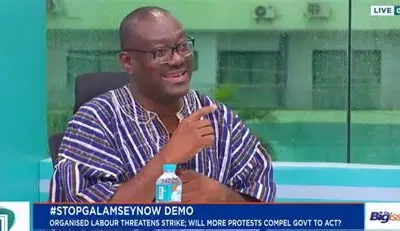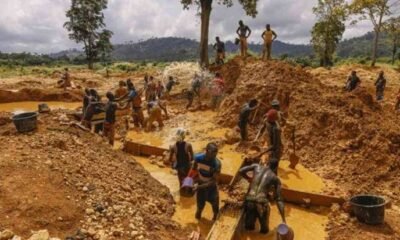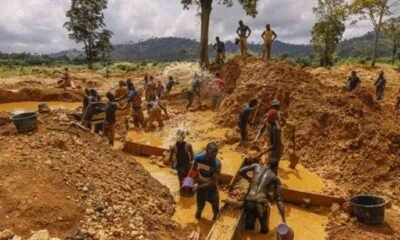Published
5 months agoon
By
Adubianews
The Ghana Catholic Bishops’ Conference has turned its attention to the country’s clergy, urging them to raise their voices boldly against the destruction caused by illegal mining, popularly called galamsey.
In a strongly worded pastoral message, the bishops said the menace is not only an environmental crisis but also a moral catastrophe that demands prophetic witness. “To religious leaders: speak prophetically without fear or favour,” the statement declared, stressing that silence in the face of such devastation is unacceptable.
They outlined the scale of damage, noting that galamsey has “ravaged our rivers and forests, poisoned our soil, endangered public health, corrupted governance, eroded our moral fibre, and extinguished livelihoods.” According to the bishops, this level of destruction represents a betrayal of humanity’s sacred responsibility to safeguard creation. Quoting Scripture, they reminded the clergy that “The earth is the Lord’s and all that is in it.”
The Conference further lamented that the crisis has been deepened by the complicity of some politicians, traditional rulers, and even religious figures who have shielded illegal operators for personal gain. Such betrayal, they warned, is a “cancer in our national soul” that corrodes conscience and weakens public trust.
To confront the menace, the bishops pressed for decisive action from both government and society. They called for a holistic national plan that includes declaring a state of emergency in affected areas, revising mining laws, establishing special courts, and creating sustainable livelihood alternatives for those driven to illegal mining by poverty.
“Delay is betrayal,” the bishops cautioned, urging pastors, priests, and imams to use their pulpits and platforms to demand repentance, accountability, and urgent reform. They concluded that the galamsey struggle is about more than law enforcement; it is about the destiny of the nation itself. “This struggle is not merely about law enforcement. It concerns the very soul of Ghana. Religious leaders must help the nation choose life for future generations.”


Catholic Bishops Urge State of Emergency to Halt Galamsey Devastation


Minority Raises Alarm as 17 Ghanaians Die from Illegal Mining in 2025


Alfred Thompson Raises Alarm Over Rising Attacks in Galamsey Fight


Ayensuano DCE Leads Night Operation to Arrest Four Galamsey Operators at Anum Apapamu


Dr Asah Asante Warns Gov’t: Ignoring Galamsey Could Cost 2028 Election


NPP Undermining Government’s Fight Against Galamsey – NDC Volta Youth Organiser


TUC Pushes for Action Against Politically Exposed Galamsey Operators


TUC Slams Government for Ignoring Pledges to Tackle Galamsey and Safeguard Water Resources


GMA President Urges Ghanaians to Hold Politicians Accountable in Galamsey Fight

























